In the midst of seemingly endless violence and unrest, as we seem to be today, some commentators are contrasting our time with what looks, in retrospect, like the golden, idyllic years of the 1950s. The terrible war of the 1940s had been won, and our citizen-soldiers were happy to be home with their families to resume normal lives. American industry was humming; people were working; wages were rising; houses were affordable; and cars were plentiful. Life was good, and getting better.
Having grown up in the 1940s and ‘50s, I concur with much of that assessment. I was not yet an adult when the 1950s dawned, but I was raised in a solid, two-parent family where my security was never threatened. Nevertheless, the “peaceful, golden ‘50s” story was something of a myth. So to enhance the education of readers who weren’t around in that era, I’ll describe some ‘50s events in chronological order, along with assessments of the good, bad and (sometimes) ugly during that decade.
War again.
Peace in the Pacific lasted just five years, until North Korean armed forces stormed across the 38th Parallel in June 1950 to invade South Korea, in an attempt to reunite the divided country under communist rule. The United Nations Security Council considered the matter, but insiders predicted that any proposed action would be blocked by the USSR, which was one of the five permanent members who wielded veto power in the Council.1 When the Council’s vote on the Korean matter was held, however, the Soviet representative was not present to deliver the expected veto. The Council then approved military intervention to block the North Korean advance.
Americans weren’t very enthusiastic about going to war again, just five years after finishing World War II. No crowds of young men were lined up at recruiting offices, eager to fight the North Korean commies. But the draft was still in effect, so our armed services began beefing up their ranks to join the United Nations forces “over there.” I was old enough to know some young men who went with them, including my Uncle Claude and several young members of a Bible class my dad taught.
Five-star General Douglas MacArthur2 commanded our forces in Korea. Most Americans applauded this, since he had led our victory over the Japanese in the recent Pacific war. If we weren’t very happy about another war, we were at least confident that our forces were in good hands. We had confidence that the general knew how to win a war.
General Mac and his corncob pipe went right to work, engineering a brilliant amphibious landing in the rear of the enemy forces at Inchon, South Korea, in September 1950. He also began an advance into North Korea to achieve complete defeat of the invaders. This put the North Korean forces in a precarious position, and helped us to believe that we were on our way to a quick victory.
But MacArthur’s push northward signaled to the Maoist Chinese that they needed to save the North Koreans by sending ground troops across the Yalu River, into North Korea. Estimates differ on how many Chinese troops entered the war, but many experts say they numbered some 300,000, starting in October 1950. Those numbers overwhelmed the UN forces and encircled some 30,000 American soldiers at the Chosin Reservoir in North Korea, where they faced 120,000 Chinese and North Korean troops. In desperately cold weather, our troops achieved a retreat to safety, through enemy lines.
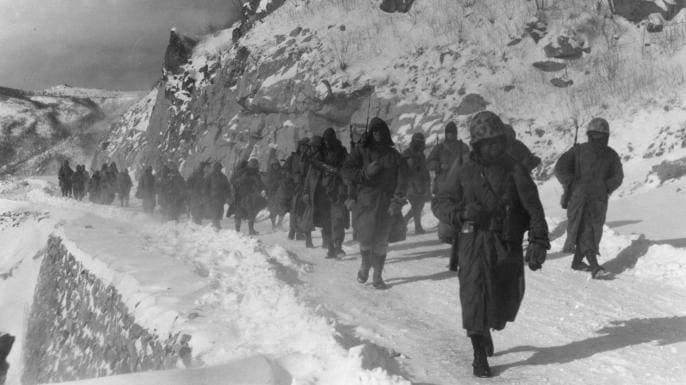
With the Chinese forces changing the balance of power in Korea, the war became a stalemate, with depressing losses on both sides. Our forces shifted for position and hung on, while war-weary Americans went grimly about their lives and work. In our Sunday School class we prayed for “our boys in Korea.” It was a worrisome time. After years of sacrifices and toils to win World War II, we were at war again.
Blair House shootout.
In November 1950, two heavily armed Puerto Rican extremists busted into the grounds of Blair House, in Washington DC, with the clear intention of assassinating President Truman, who was temporarily living there. In a wild, 5-minute gun-battle, Secret Service agents and Capitol policemen engaged the would-be assassins and kept them from entering the house. A Capitol policeman and one assailant were killed, and two other officers were wounded, (A friend of mine actually witnessed the shootout as he and his colleagues were having coffee at a nearby drugstore. They thought it was a movie scene being filmed.)
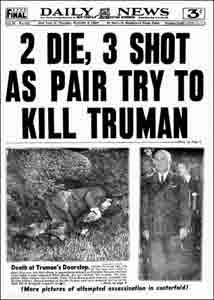
At age 7 I didn’t realize how much the incident shocked the nation. It was the first assassination attempt on a president since the 1933 attempt on FDR in Florida3. No one, of any political party, ever justified the Blair House attempt or said it was too bad that the assassins had failed. Mr. Truman wasn’t very popular at the time, but he was still our president. Wishing him harm simply wasn’t done – another difference between then and now. Bad things still happened, but our reaction to them was notably different then.
Recall of General MacArthur.
By April 1951, with our war-effort going nowhere in Korea, General MacArthur began to push for full-scale invasion of North Korea and expulsion of all communist forces from the peninsula. He also wanted to deny enemy aircraft sanctuary in Chinese air-space. But the Truman administration feared that these aggressive moves might bring Russia into a full-scale Asian-war, allied with China. So when General MacArthur made public statements differing with Mr. Truman’s “limited war” policy, the president relieved him of command and ordered him back to the USA on April 11, 1951.
As General Mac had not been in the continental USA since 1937, his firing and return were big news. At age 8, this was the first news event that I was aware of, although I didn’t really know who General Mac was or what it was all about. Radio stations were playing an old Bierstube ballad, “Old Soldiers Never Die, They Just Fade Away,” and commentators were arguing for and against the general’s dismissal. Some politicians were pressing him to run for president, but the general – already past age 70 – quietly declined. (A different war-hero general took up the presidential baton a year later.)
“I Like Ike” and End of the New Deal.
Many historians believe that the firing of General MacArthur was the kiss of death for Mr. Truman’s try for another full presidential term. The 22nd Amendment to the Constitution – limiting presidential service to two full terms plus no more than two additional years – had been enacted in 1951. As the sitting president, Mr. Truman was exempted from its limitations. But at age 68, sensing which way the political winds were blowing, Mr. Truman declined to run against General Eisenhower in 1952.
The 1952 presidential campaign was the first one that I was fully aware of. My fifth-grade classmates were waving pennants and wearing pins that said “I Like Ike.” Our teacher, Miss Bothwell, finally ordered all political materials to be put away. At the time, none of us realized that General Ike – hero of our 1945 victory over the Nazis – was riding a wave that would close out 20 years of Democratic New Deal governance. The 1952 election won the presidency for General Eisenhower and put Republicans in control of both houses of Congress – a rarity during the FDR/Truman years.
On election night we were visiting my Great Uncle Sam Miller –my maternal grandma’s brother and a World War I veteran – as the returns were coming in. He mentioned that Ike was a distant family relative. I also carry a memory of rushing down to the front porch to retrieve the newspaper on the morning after the election, and announcing to my mom that Ike had won. The lead article said Ike had broken the Solid South – a Democrat fixture since the Civil War – although I didn’t yet know what that meant. The election initiated my interest in news (and newspapers) that has remained through my life.
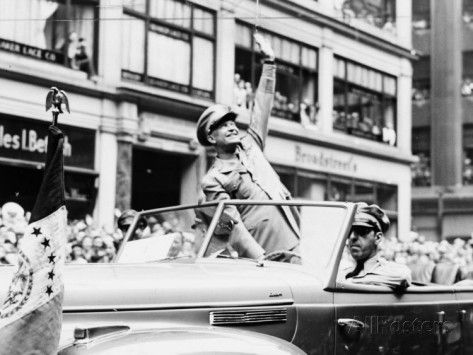
Korean Armistice.
During his 1952 presidential campaign, Ike didn’t turn the Korean War – called a “police action” by the Truman administration – into a political football. He merely said, “I will go to Korea.” So just six months after Ike’s inauguration, the North Koreans agreed to an armistice which ended armed hostilities and set the 38th parallel as the official dividing line between the north and south partitions. No details of the negotiations were publicized, but some insiders hinted later that President Ike had threatened to use the A-bomb if the North Koreans refused to stop fighting. Evidently they knew that the former generalissimo should be taken seriously.
Americans were relieved that the war was done, although we knew we hadn’t won it. That’s why we have lived with the existential threat posed by three dictators from the Kim Dynasty4 ever since.
The Rosenbergs.
Charged with passing atomic bomb secrets to the USSR, and convicted of espionage in 1951, Julius and his wife Ethel were executed by the federal government of the United States in 1953 at Sing Sing Prison in Ossining, New York. They were the first American civilians to be executed for such crimes, and the first spies to be executed during peacetime. Newspapers were filled with the grisly details of their electrocutions. At age 10, I and my classmates were fully aware of the events. It was a grim time.
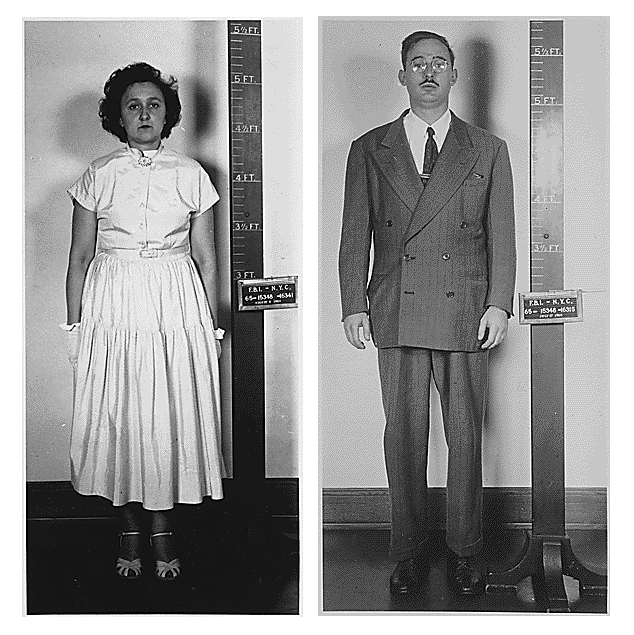
OK Corral at the House.
On March 1, 1954, three armed Puerto Rican nationalists opened fire from the gallery of the House of Representatives, while the 83rd Congress was in session. There were no fatalities, but five representatives were wounded, including Alvin Bentley (R-MI) and Ben Jensen (R-Iowa) who were seriously wounded but survived. The three shooters were identified as members of the Nationalists, a party dedicated to freeing Puerto Rico from U. S. rule.

Suez Crisis.
After Egyptian Premier Abdul Nasser “nationalized” the Suez Canal in 1956, British, French, and Israeli armed forces invaded Egypt in late October to re-establish control over the Canal. Leaders of those nations said Nasser’s action threatened the free access to the vital Canal needed by their commercial transportation systems. Shipment of oil through the Canal was especially critical for Britain and France.
During a 2-week period of intense debate in the United Nations Security Council, an attempt was made to issue a demand for hostilities to stop and forces to be withdrawn. But Britain and France vetoed the motion, having veto-power in the UNSC. The Eisenhower administration was caught in the middle on the issue. An administration-insider noted later that we could hardly oppose Russia’s heavy-handed treatment of Hungary – then going on – while accepting the takeover of Suez by Britain, France and Israel.
Ultimately, American pressure helped to motivate withdrawal of the tri-partite invasion and restoration of normality to the Suez region. The brief hostilities later were named the “Second Israel-Egypt War.”
The Mad Hatter.
Back in the day, when the American mafia was almost a law and an entire culture unto itself – indirectly enabled by FBI Director J. Edgar Hoover, who didn’t believe organized crime existed – systematic murder was the Cosa Nostra’s tool for enforcing its rules and policies. As the mob’s structure became more fixed, its capos decreed that murders must be “sanctioned” by the Capo di capos, and carried out by a designated arm known as Murder Incorporated. It was headed by the ruthless killer and underboss, Umberto (Albert) Anastasia, who earned the well-deserved moniker, The Mad Hatter of Crime.
In the ten years of this execution squad’s operation, Anastasia and his “soldiers” carried out no fewer than 400 (and possibly as many as 1000) murders, most of which were never solved. Anastasia was not prosecuted for any of these crimes – probably because he didn’t personally participate in most of them. Ultimately, his involvement in a power-struggle for control of one of the syndicate’s crime families led to his own assassination, in October 1957. He was shot to death by two masked men as he sat in a barber’s chair at the Sheraton Hotel in midtown Manhattan.
His driver had left Anastasia alone for a few minutes to park their car in a nearby garage. Police never learned if the driver had deliberately left Anastasia unguarded as part of a setup to enable his killing. (One doubts if the NYC cops took very great pains to find out.) Whatever the truth might have been, Anastasia died by the same sword he had lived by. True to form, no one was ever prosecuted for his murder.
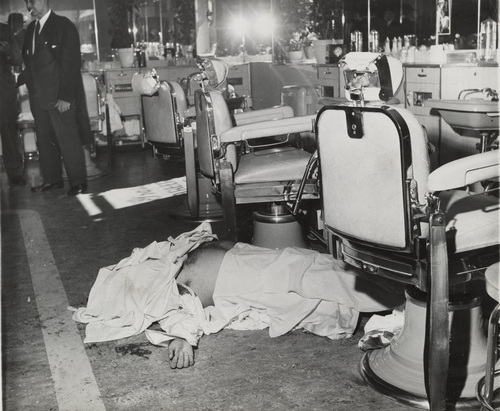
Cuber.
As a newsboy I read the news each day in 1959, as I pounded my route. When Castro drove the crooked Dictator Batista into exile and took over Cuba, we hailed the 33-year-old rebel as a romantic figure, much like the Spanish Civil War rebels. Ernest Hemingway and others who had covered that war as young journalists were still around, and the papers carried admiring human interest stories of the dashing young revolutionary who had unseated the mobbed-up Batista and his henchmen. It was1936 and For Whom the Bell Tolls5 again.
I still recall how the tone changed to concern, as the daily count of executions mounted into the hundreds and then thousands. Reports also emerged of Castro’s possible communist affiliation. Soon it was definitely established that Castro was a communist, and it was suspected (but not confirmed) that the Soviets had backed his revolution. This was while the American public still naively thought that a successful armed revolution, with real guns and bullets, could be mounted on a romantic shoestring.
Overnight, Castro changed from a Cuban George Washington to a villain who had betrayed us by being a commie. The American public was outraged, and both the Eisenhower administration and the CIA were embarrassed that communists were allowed to take over a country just 90 miles from our shores. It was this outrage and embarrassment that essentially formed the basis for American policy toward “Cuber” (as JFK called it) for the next 60+ years.
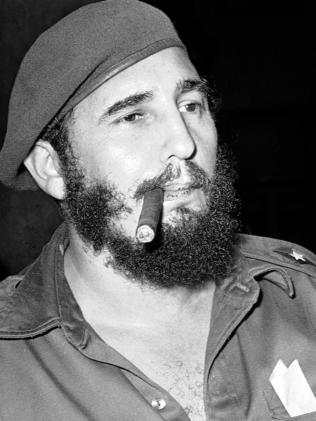
Gentleman Floyd.
Another great recollection from the late 1950s is the saga of Floyd Patterson – a classy young boxer who won the middleweight gold medal at the 1952 Helsinki Olympics, at age seventeen. After turning pro he competed for the heavyweight vacancy left by Rocky Marciano’s retirement – knocking out light-heavy champ Archie Moore in 1956 to gain the heavyweight title. At 21, Patterson was the youngest fighter ever to win the heavyweight crown. He successfully defended his title four times.
In June 1959 Patterson defended his title for the fifth time when he met the European champion, Ingemar Johansson, in New York. Newspapers and sportscasts were filled with speculation over whether Patterson could avoid Johansson’s fearsome right hand, his most effective punch.
As it turned out, Patterson could not. The big Swede knocked him down seven times before the referee stopped the fight in the third round. Johansson had taken the title.
Still young, at 24, Patterson lacked the maturity to deal philosophically with the loss. He was so humiliated over losing the title that he went into monk-like seclusion to train for the rematch. Occasional photos appeared in the newspapers of Patterson running on lonely mountain roads, deep in the Catskills. He trained for months with a kind of holy zeal, and reporters were not encouraged to visit his camp. Johansson, by contrast, was typically photographed at poolside, surrounded by beautiful blondes.
The rematch in New York came on June 20, 1960, almost exactly a year after the first fight. Energized and well prepared, Patterson came after Johansson like a tiger, knocking him out in the fifth round with what some have called “the best punch ever in boxing.”
I distinctly recall listening to the fight-description on the radio with my buddies in someone’s car, at a drive-in hamburger joint. At the knockout, we cheered and celebrated. Later I reflected on the irony of a bunch of white guys cheering a black man’s win over a white man. But who cared about race? All that mattered was that our guy – Patterson, the American – had won. His victory made him the first heavyweight in history to regain the title. On March 13, 1961, Patterson knocked Johansson out in the sixth round of their third and final match.
A gentleman both inside and outside the ring, Patterson endeared himself to Swedish fans by his concern for his unconscious opponent in the ring after the knockout. On a subsequent European exhibition tour he won the admiration of crowds of Swedes who sought to shake Patterson’s hand and get his autograph.
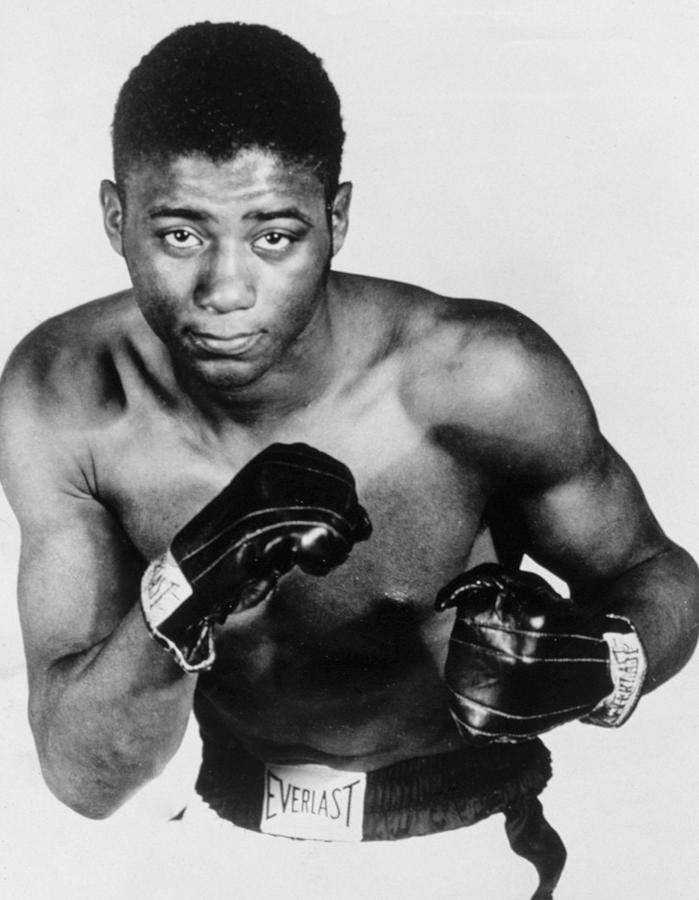
Paper and Silver.
During my high school years I delivered newspapers to city-doorsteps. My last route, in 1959-’60, was a two-block stretch of row-houses, where I delivered 85 morning papers. Every day I rose at 5:30 AM, pedaled 5 blocks to pick up the bundles of papers, and walked the route for about 15 minutes. I was a complete businessman – collecting 90¢ from each customer every two weeks, and paying the Morning Call 3.5¢ for every paper I delivered. For that work I made $10 a week, and felt I was well-paid. (Gas cost 20¢ a gallon, and a 6-ounce coke cost 5¢.) Hundreds of silver half-dollars passed through my hands in those days. They sent me to college. For a long time I carried one in the pocket of my vest to remind me of where I came from and how I got here.
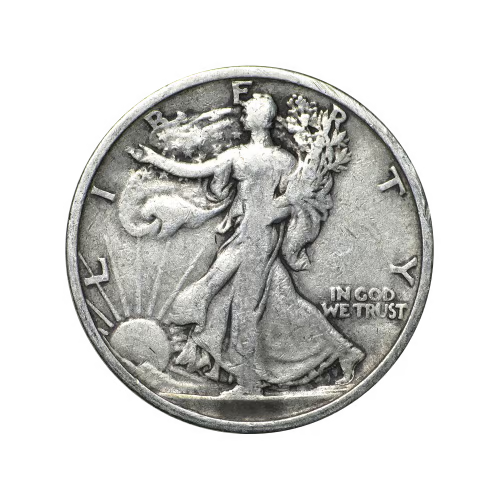
+++++++++
So what can we learn from this variegated skein of recollections from the Nifty-50s? From my vantage-point, I see several things:
- Not everything in America was uniformly wonderful then. War always seemed to be with us, or just around the corner. Bad guys doing bad things kept popping up.
- We (the People) trusted government to protect us and act responsibly. There was no coddling of criminals.
- Big (and Little) Media were our allies. We trusted their agents to tell us the truth.
It was a different time. I’ve always been glad to have experienced it.
*********
- The United Nations Security Council was designed to have five permanent members: The USA, United Kingdom, USSR, France, and Taiwan (the non-communist part of China). Ten non-permanent members are elected for two-year terms by the UN General Assembly.
- Five-star General Douglas MacArthur (1880-1964) was the scion of a distinguished military family. His father, General Arthur MacArthur, was a colonel in the Civil War, and eventually rose to the rank of lieutenant general. Douglas grew up at army posts in the Old West, graduated at the top of his 1903 West Point class, commanded the Rainbow Division in World War I, and was overall commander of our Pacific armies in World War II.
- The assassination attempt on FDR took place on February 15, 1933, at Bayfront Park in Miami, Florida, just after the president-elect had delivered a speech from his car. Giuseppe Zangara, a deranged, unemployed bricklayer, shouted, “Too many are starving!” as he fired five shots from a .32 caliber pistol at FDR, all of which missed his target, but struck others. Four spectators were slightly wounded, but Chicago Mayor Anton Cermak was mortally wounded. As he lay dying, Mayor Cermak allegedly whispered to FDR, “I’m glad it was me, not you.” Zangara received a death sentence for his crime and was electrocuted on March 20, 1933.
- Kim Il-sung ruled North Korea from 1948 to his death in 1994. His son, Kim Jong-Il, ruled from 1994 to his death in 2011. His son, Kim Jong-Un, took over in 2011.
- Hemingway’s great novel of the Spanish Civil War.

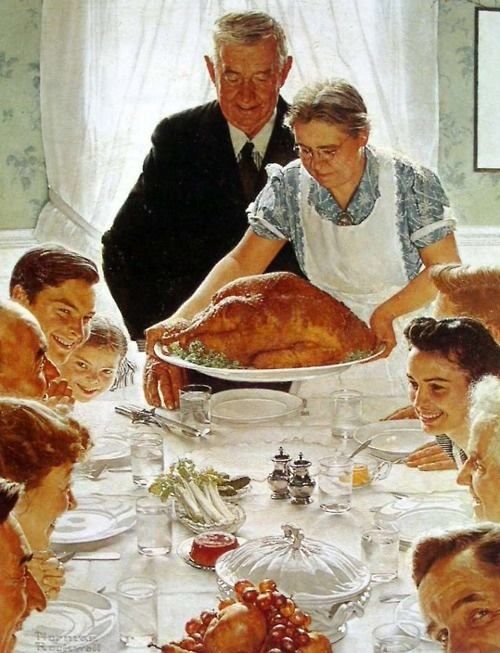
12 comments
At the core of today’s Republican Party is what we should call the Fascist Contradiction.
The Fascist Contradiction states that the Nation is essentially great and pure and chosen for its world-historical destiny, but simultaneously decadent and depraved and almost past all saving, hence the need for its resurrection under the leadership of The Great Leader.
This is amusingly captured by Trump’s claims that America had ceased to be great by 2016, became great again for exactly four years, then ceased to be great on January 20th — or perhaps January 6th — 2021, but can become great again in a few months.
Only the most simple-minded among us believe this crap, which is why Trump rules the Republican Party.
Thanks for sharing your memories in a well written piece.
The 1950’s in rural Mississippi were not the paradise you describe because the hands of Jim Crow and the KKK lay on top of everything.
We white people NEVER referred to a Black person as Mr., Mrs., or Miss — we called the “boy” or “girl” and always by their first name.
Imagine me an eleven year old kid referring to a70-yr-old black man as “John”.
My little county was 75% Black. I learned later that there were 12 Blacks registered to vote in the county.
Emmitt Till was tortured and murdered not far from me. Ditto for Schwerner, Chaney, and Goodman.
One day my grandmother observed a young white woman driving a car and smoking a cigarette. She burned up the phone lines with the other church ladies about this disgraceful behavior.
I saw a guy couple of weeks ago wearing a T-shirt with a logo something about “I wish we were in the days when I grew up.”
I don’t. Not in any way. Of course, I understand you and the rest of the GOP want to see Blacks in the back of the bus, women in the kitchen, gays in the closet or in jail, and old white men in charge.
Well, Doug Wilder was able to become governor of Virginia, if he could do that then why can’t other blacks earn prominent positions? And, Obama became president. Despite only 13.6 % of the people in this country being black. The biggest problem blacks face now is the mainstream media that they mostly control. You see, it’s that mainstream media that refuses to let them forget their skin is a different color. It is the mainstream media that constantly, relentlessly, tells them they are inferior to other races and cannot succeed on their own. It’s not the KKK now who are the racists, it’s their own black leaders. You give a person everything they need but should be working for, and soon they will never be able to take care of themselves. Blacks can do exactly as did Gov. Wilder and President Obama did if they desire, WITHOUT A HANDOUT. But, people like you are determined to keep that a secret, and keep telling them 365/24/7, they are inferior and it is hopeless because their skin is a different color.
Is it not your type who have replaced the KKK, using different methods to accomplish the same thing and get the same results? The suppression of blacks?
As I read your response I could hear the soft strains of “Dixie” in the background, followed by a few bars of “Carry me Back to Ol’ Virginny”, then an ad for a re-run of “Gone With The Wind.”
So, your response to my factoid comment is simply that you are hearing things? Here is another factoid for you, the only possible reason you people, the left, would come to a right wing blog is that you are desperately seeking out the truth about your own existence. And, that is exactly what you found with my comment. Free of charge.
Perhaps u can explain why 40% more Bkack women die in childbirth or from pregnancy related conditions. Perhaps u can explain why when Serena Williams went to her doctor complaining of pain and high temp he sent her home then turned out she was on the verge of fatal sepsis.
Perhaps u can explain why the Texas legislature – controlled by Republicans – enacted a law giving them authority to override election results in one and only one county -Harris County, which happens to be a minority county that goes Democratic. Just coincidence, I guess – right?
I’ll field this question. For the same reason Joe Biden is now ignoring the SCOTUS ruling regarding the President does not have the power to forgive student loans, only congress has that authority. I might also add that former Speaker Pelosi also said this while she was Speaker. But, the reason Texas created the law you spoke of, and Biden is ignoring SCOTUS is to try to influence the presidential election. We are and have a lawless nation. So, there you have it.
Do you recall the COVID pandemic? Remember how things shut down? Remember how the feds established the PPP — Paycheck Protection Program — that made loans to businesses so they could pay workers during the shut down? Remember how all but a tiny fraction of PPP loans were forgiven?
I’ll bet you did not know that 13 Republican members of Congress took out PPP loans totaling almost $100 MILLION which were forgiven.
You were saying?
Just a reminder it was the Democrat Party that suppressed blacks from voting, and it was Republicans who got African American people the right to vote.
And once again we hear the simple-minded trope about “The Democratic Party was the party of slavery and still is.”
History did not stop in 1865, or 1900, or 1960.
You seem to be ignorant of some facts.
— It was a Democrat — Truman — who ordered the armed forces to be desegregated.
— It was a Democrat — LBJ — who passed the Civil Rights Act of 1964 and the Voting Rights Act of 1965. In each case, the factor that determined whether or not a member of Congress voted for/against the two acts was NOT the members party affiliation, but, the region of the country which the member represented. Southerners voted against both acts, all others voted for them — which means that most Democrats voted for both acts because Southern Democrats were not a majority in the Democratic Party.
Which then begs the question: Why is the solidly white supremacist South now no longer solidly Democratic, but instead is solidly white supremacist Republican?
And here’s another question for you. Ronald Reagan was born and reared in Illinois. He went to California to find his fortune. When he was nominated by the Republican Party in August 1980, where did he go to make his first speech as the nominee — you know, the speech that sets the tone of his campaign. Did he go home to Illinois to celebrate his Middle America roots, or, to California, to celebrate the Golden Land of Opportunity.
I’ll give you a minute to think about it.
The answer is — it’s a trick question. NEITHER. Reagan made his first speech as the Republican Presidential nominee in September 1980 at the Neshoba County Fairgrounds in Philadelphia, MISSISSIPPI, a few miles away from where three young men trying to register Black Mississippians to vote were kidnaped, tortured, and murdered. A few miles away from where Emmett Till was dragged from his uncle’s home, tortured, and murdered. A few miles away from where Fannie Lou Hamer was stripped, mocked, and beaten by white deputy sheriffs because she tried to register to vote. And why did Reagan go to Mississippi? Simple — to ensure white supremacists Southerners that he was on their side.
Meanwhile, you do understand that your continued use of a noun as a modifier simply reveals your own stupidity. The word “Democrat” is a noun. “Democratic” is an adjective, which is a word that modifies a noun. The correct construction is “Democratic Party” — the adjective “Democratic” modifying the noun “Party”. Now, I know this will fall on stupid ears because you Republicans think it’s cute. It’s not. The usage simply reveals your own ignorance.